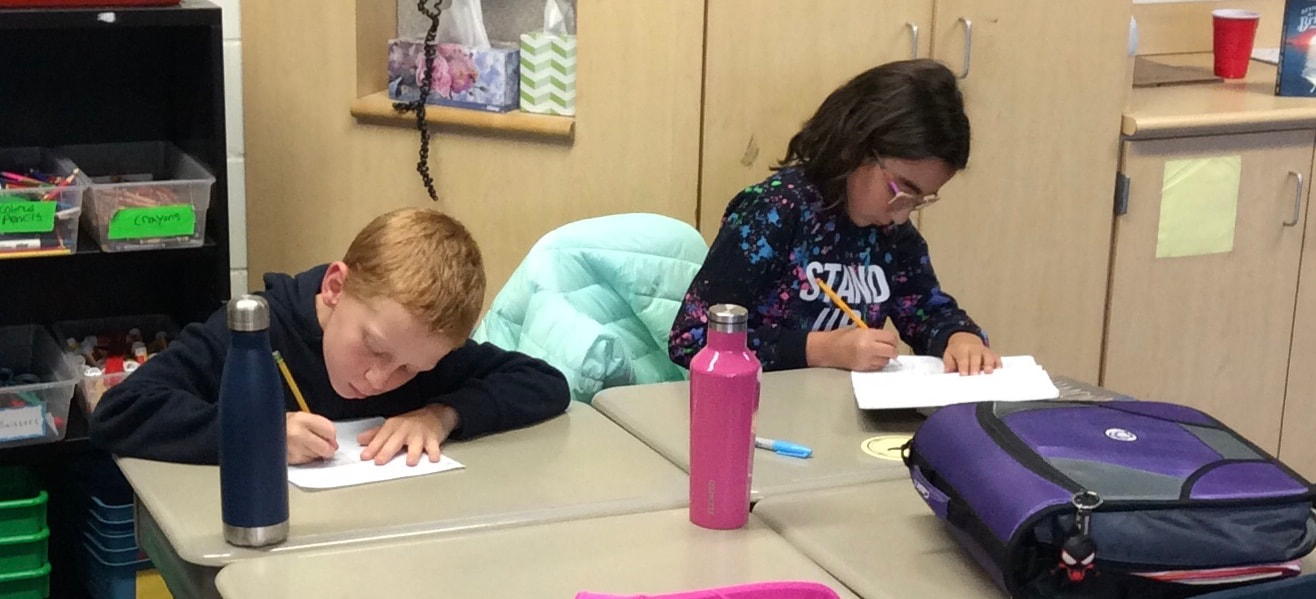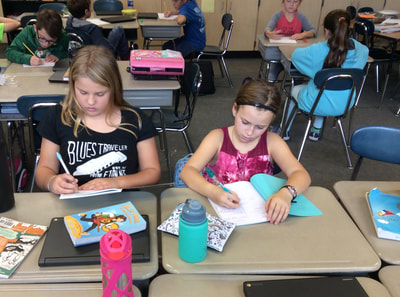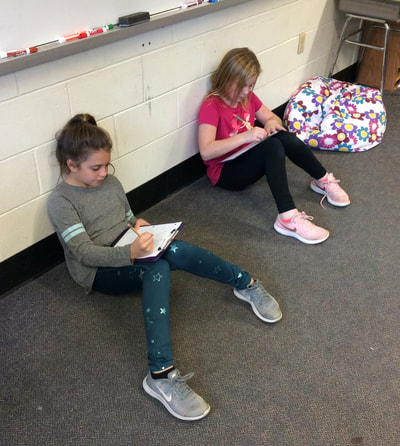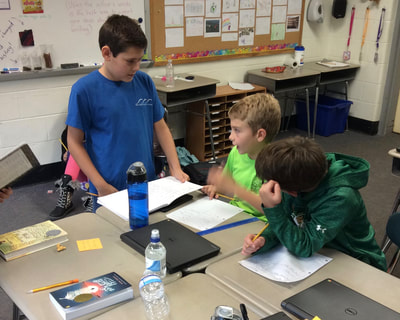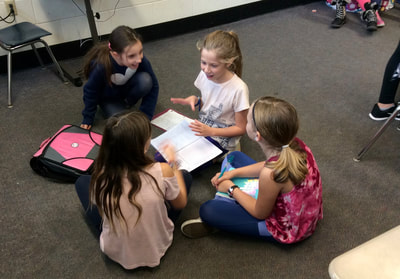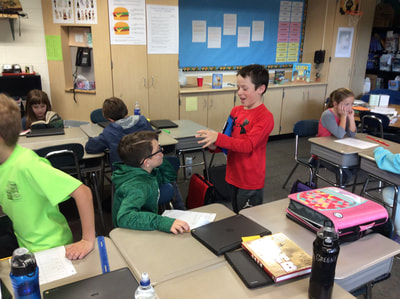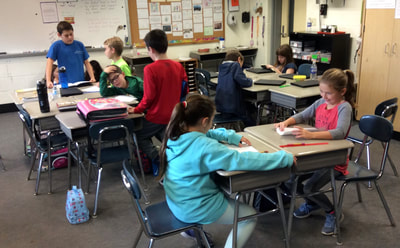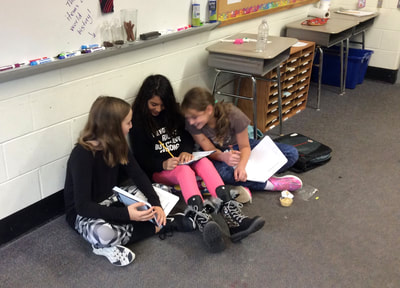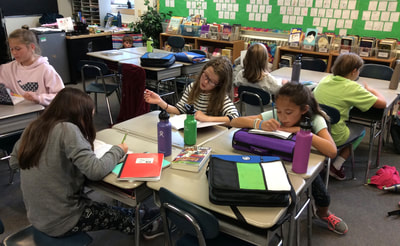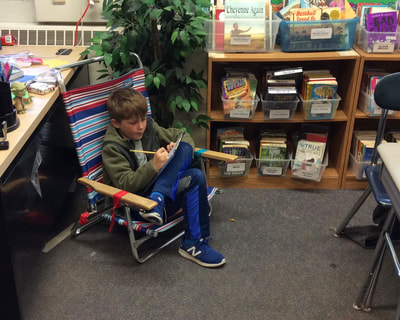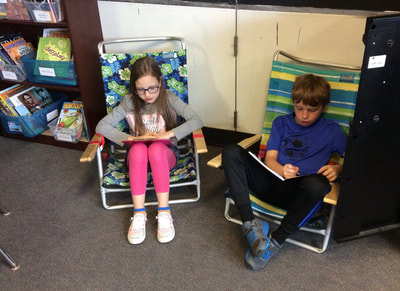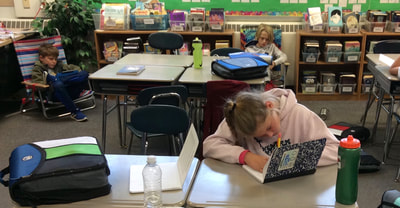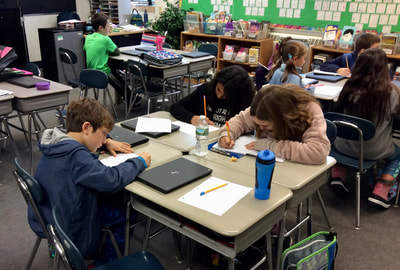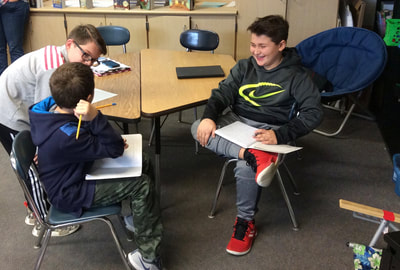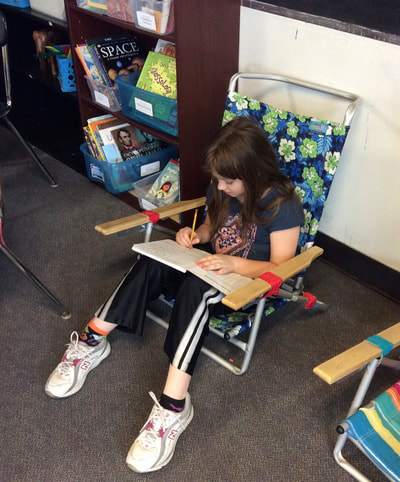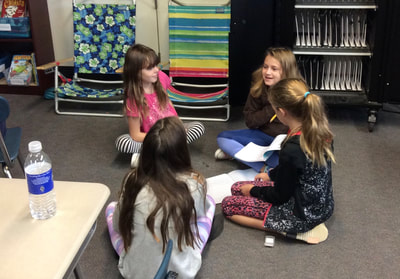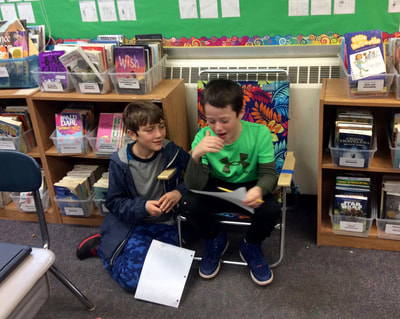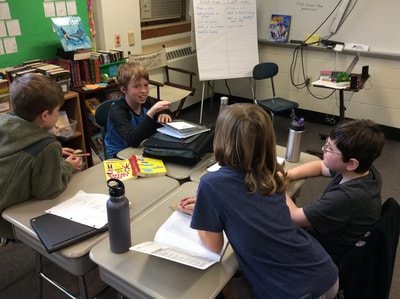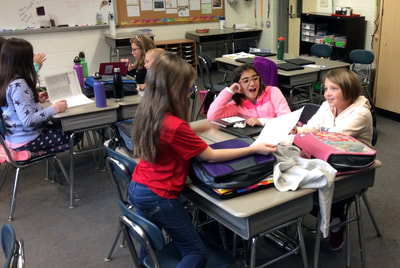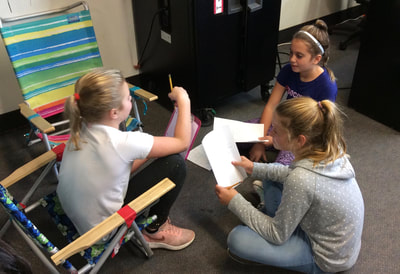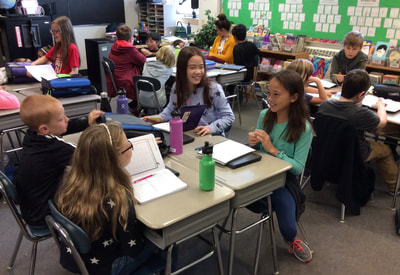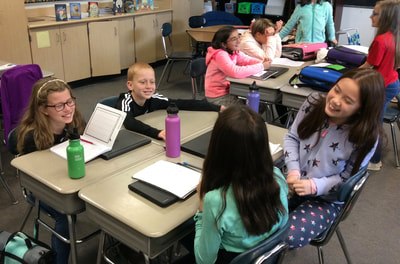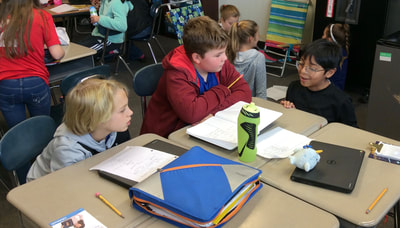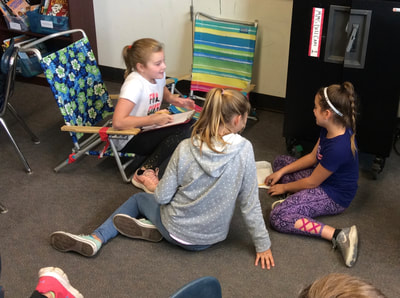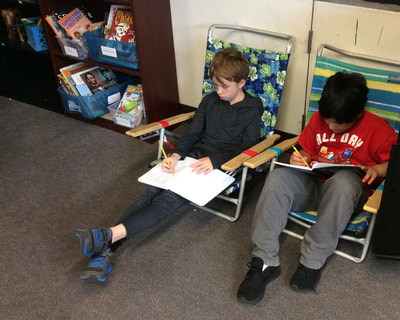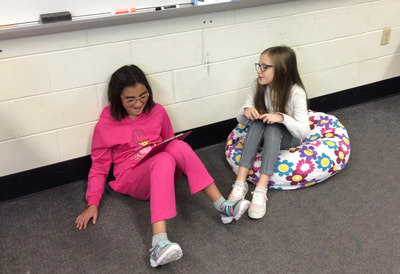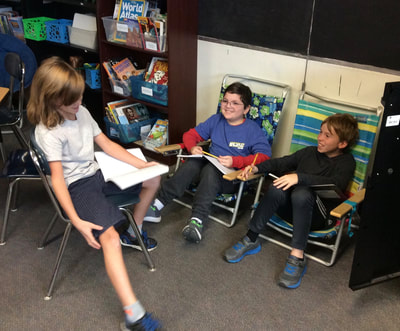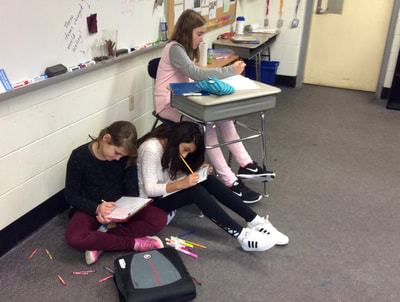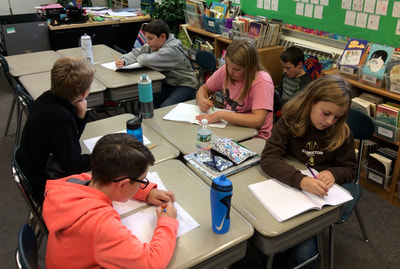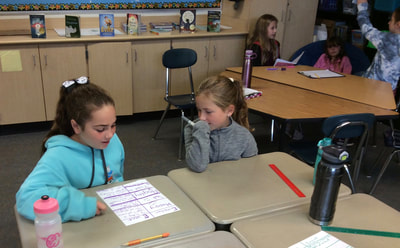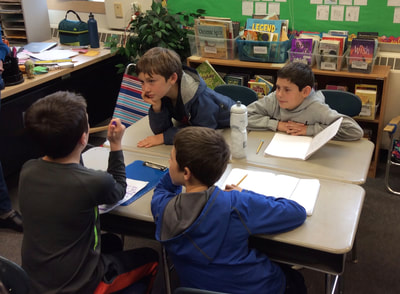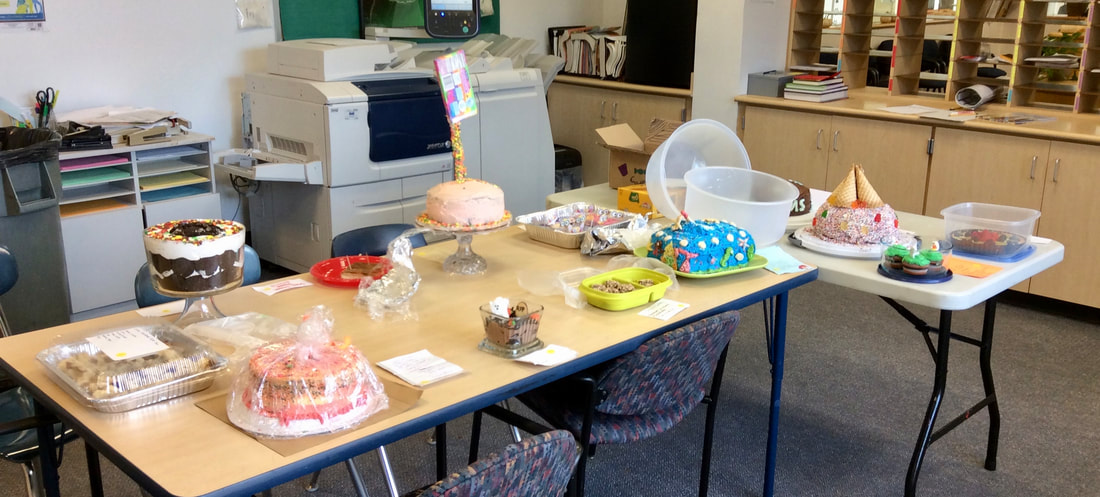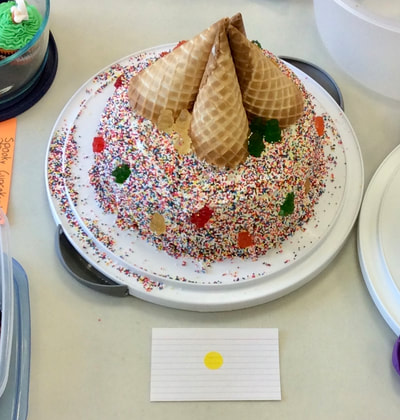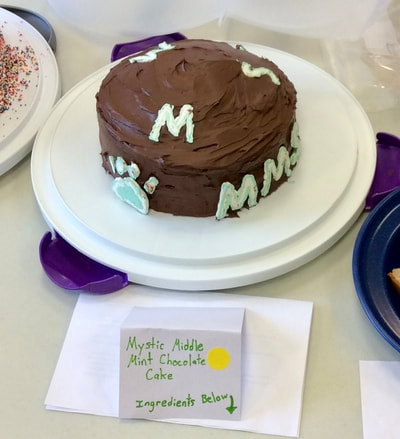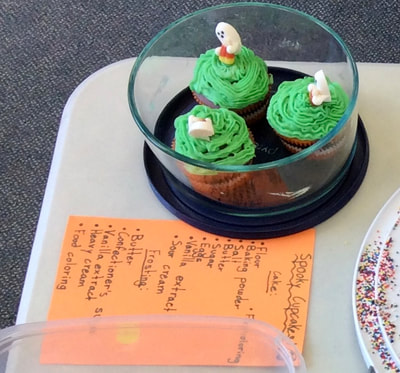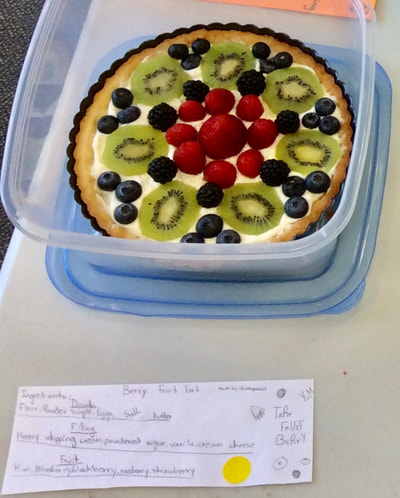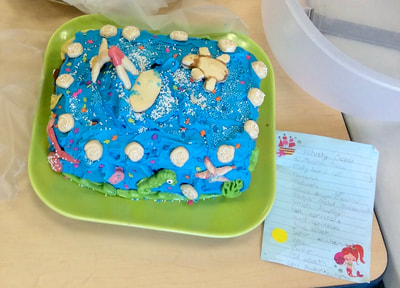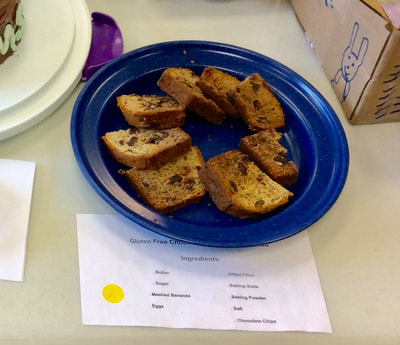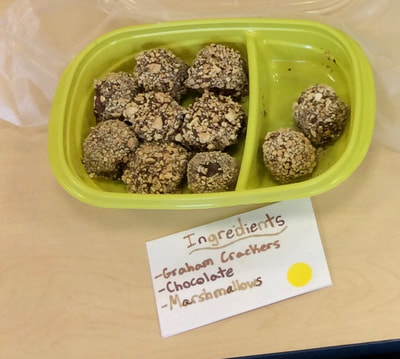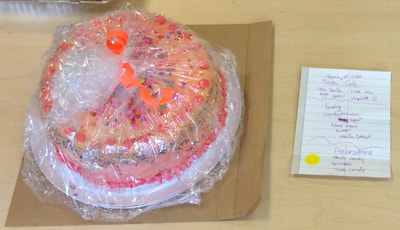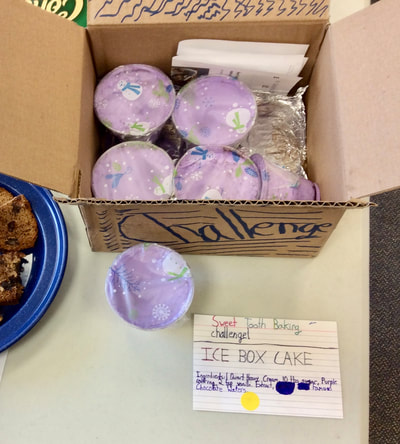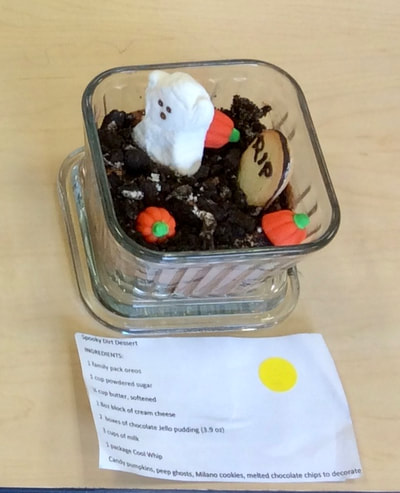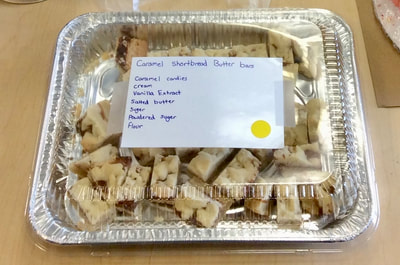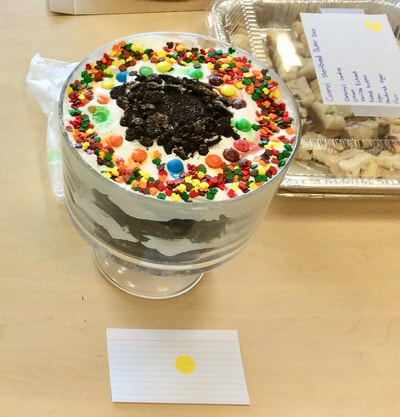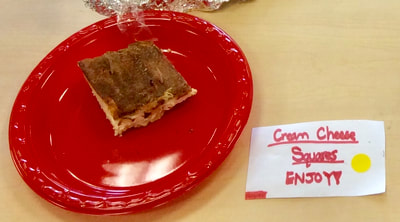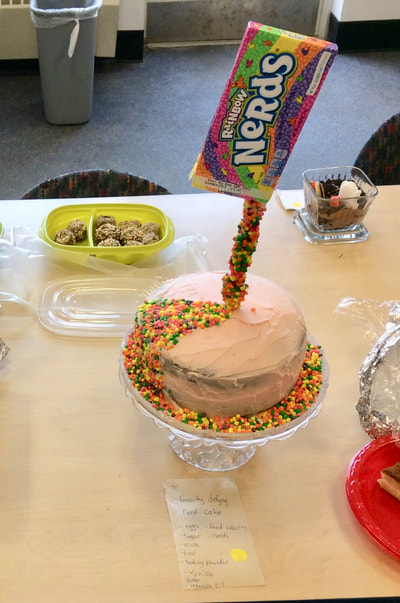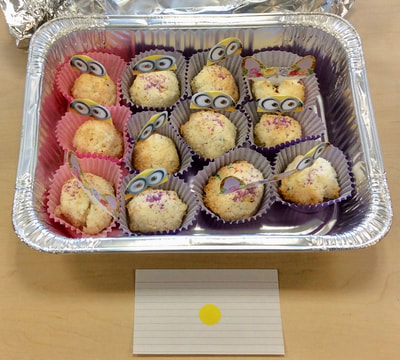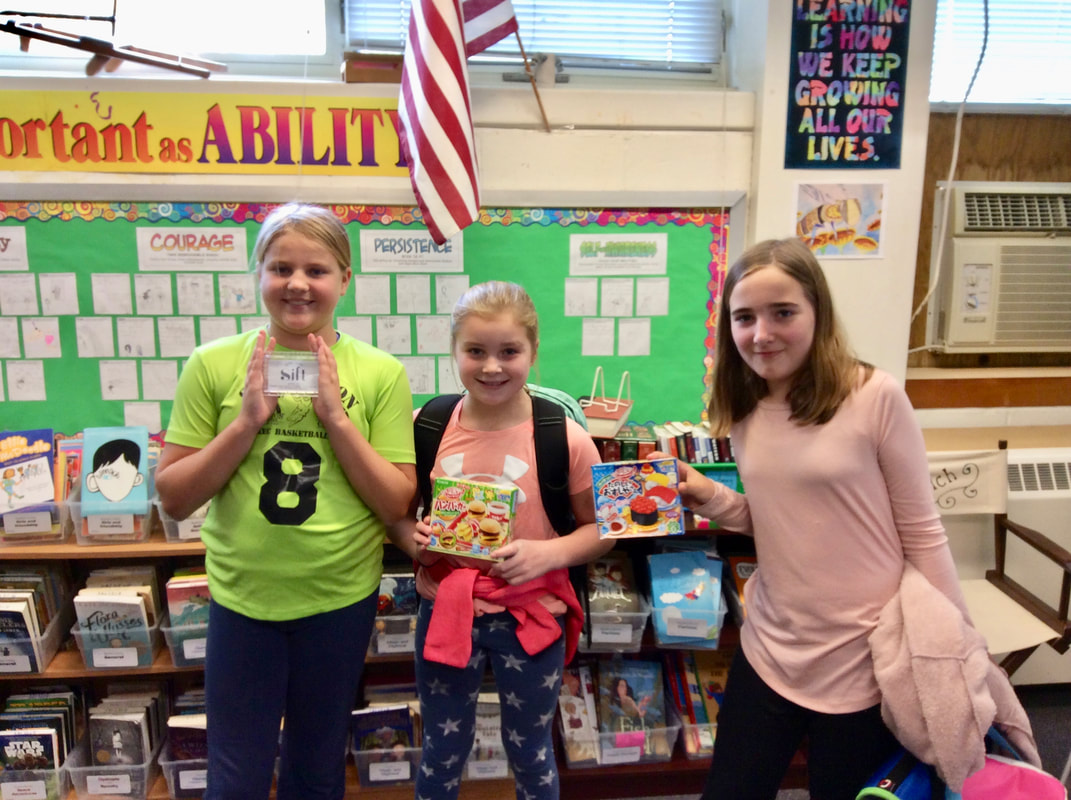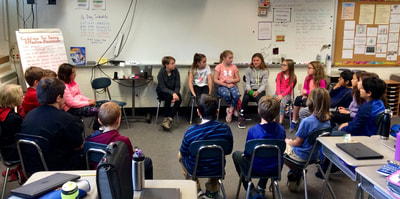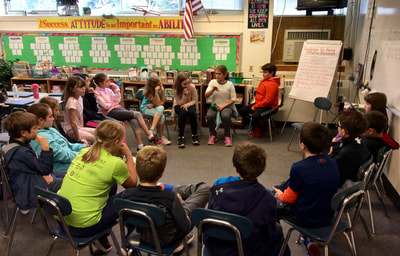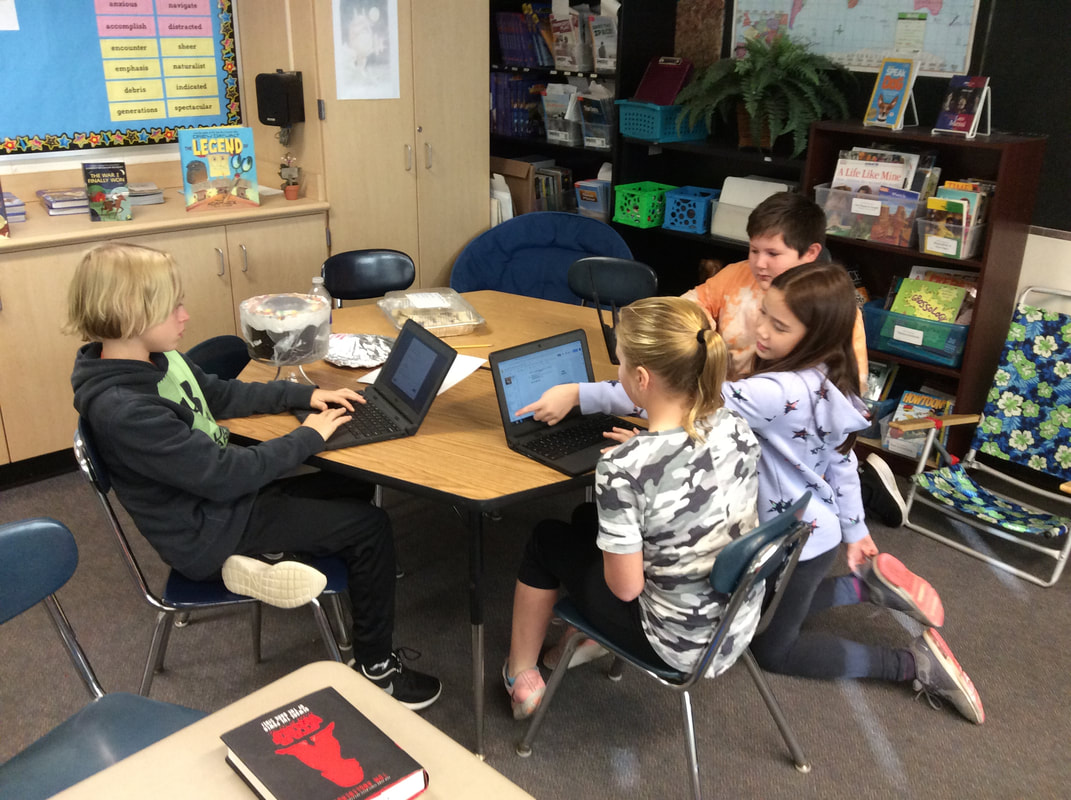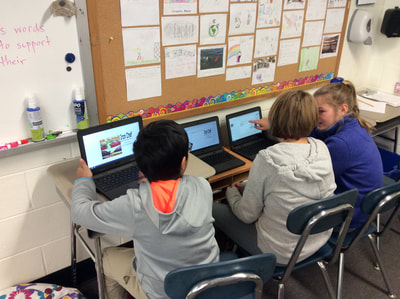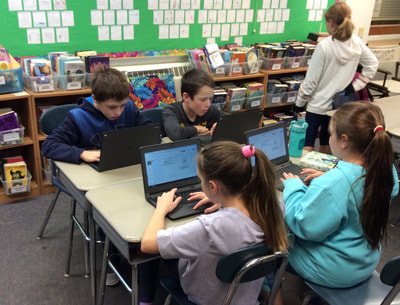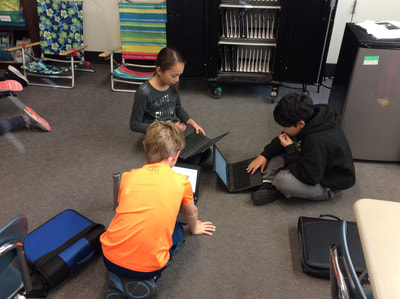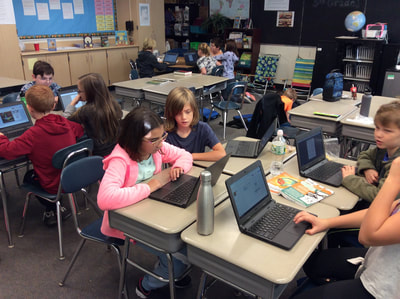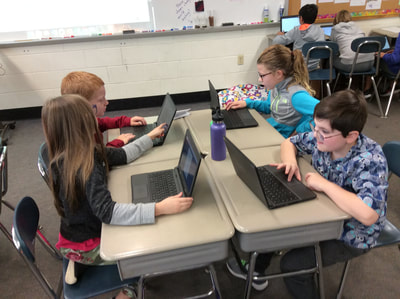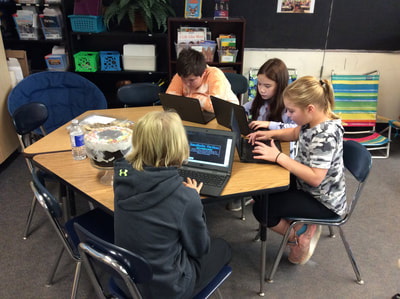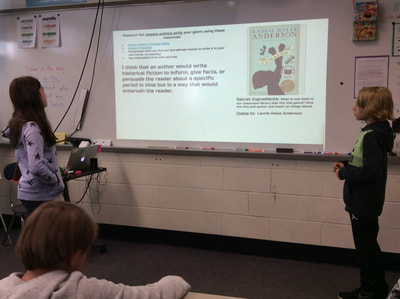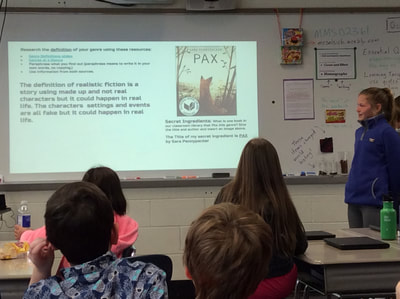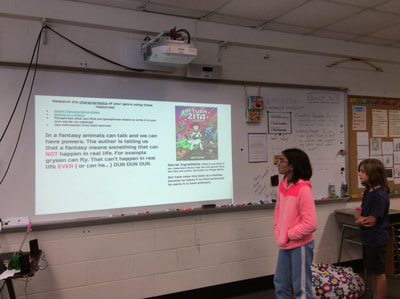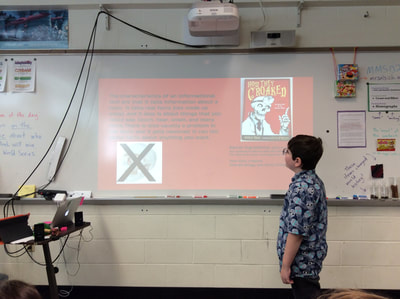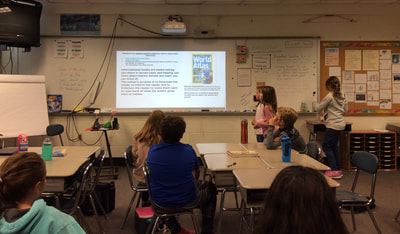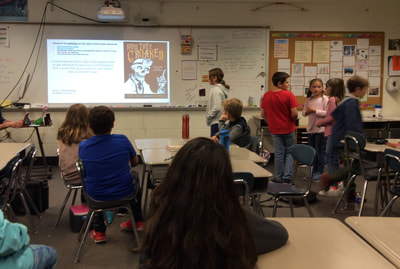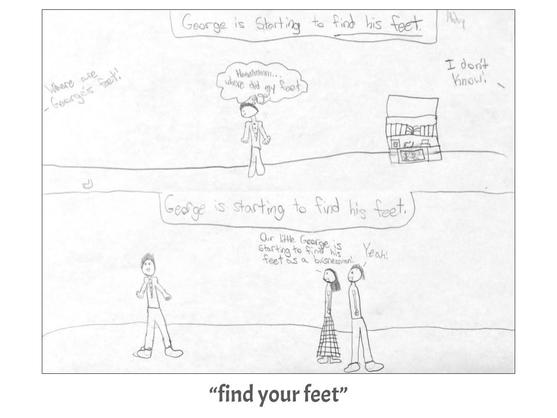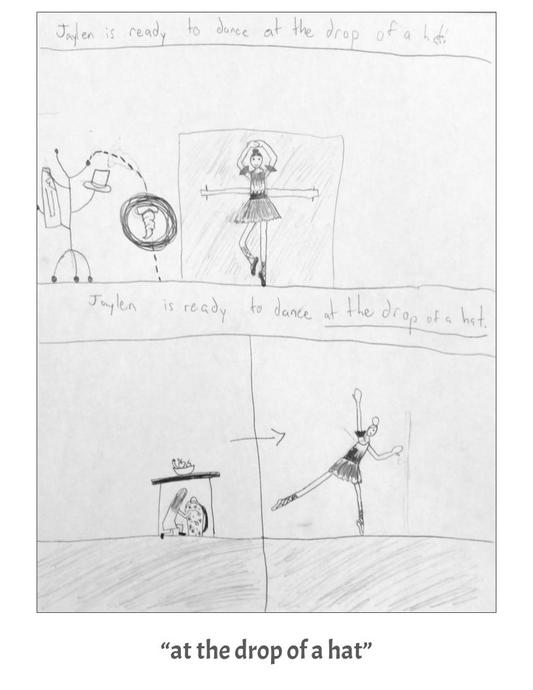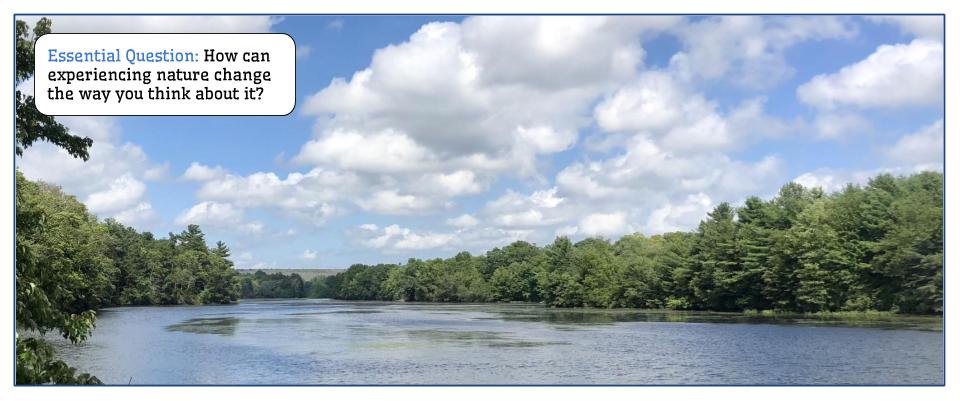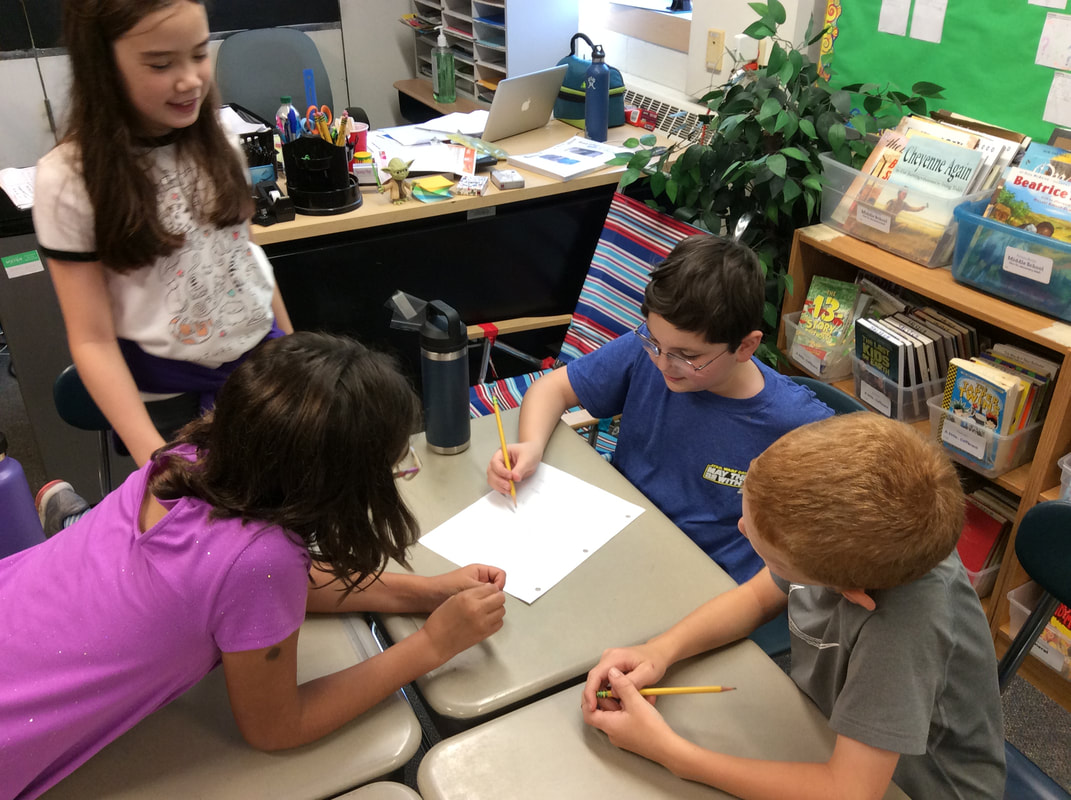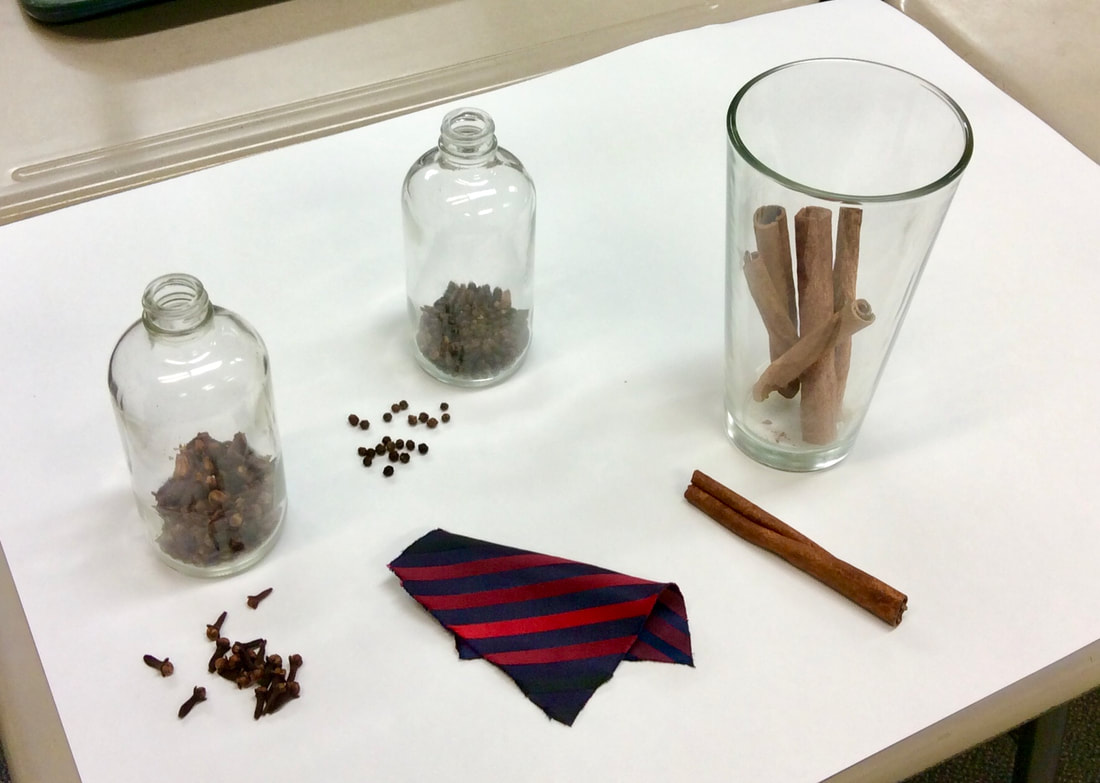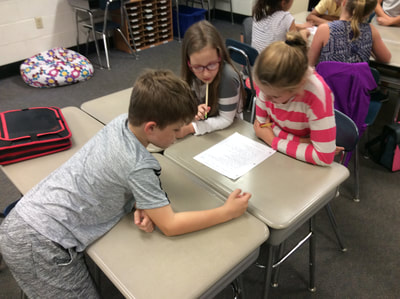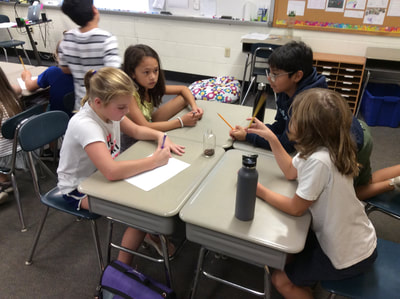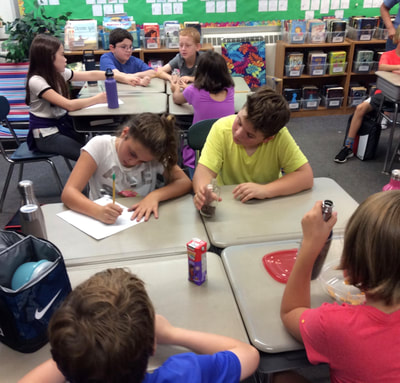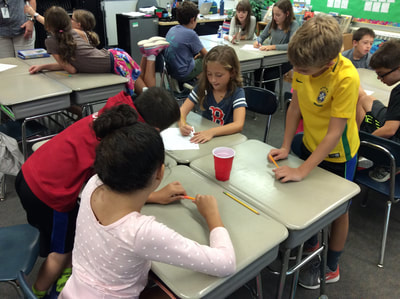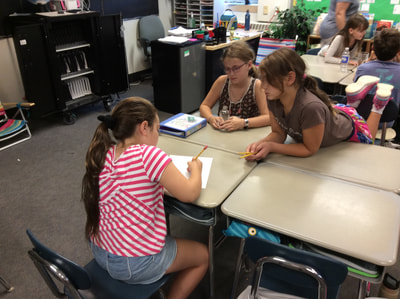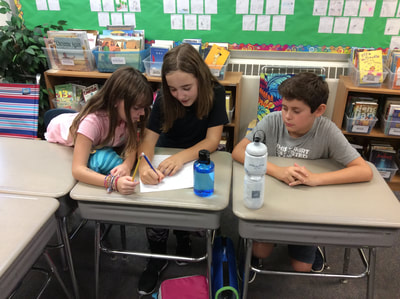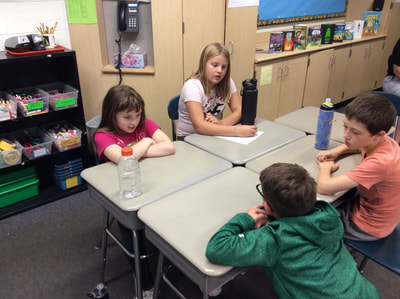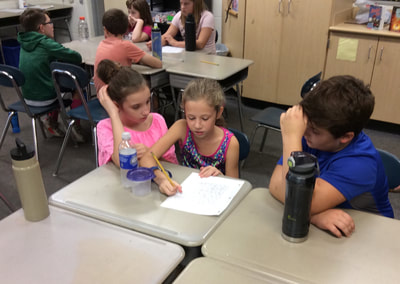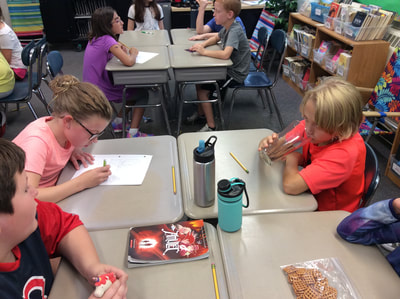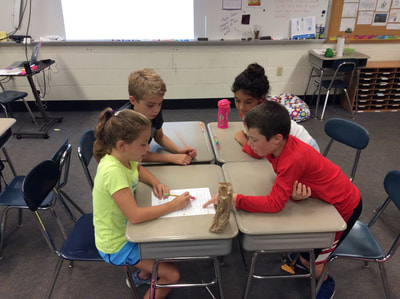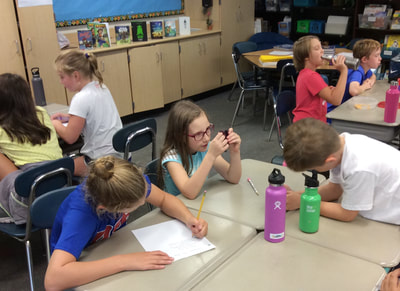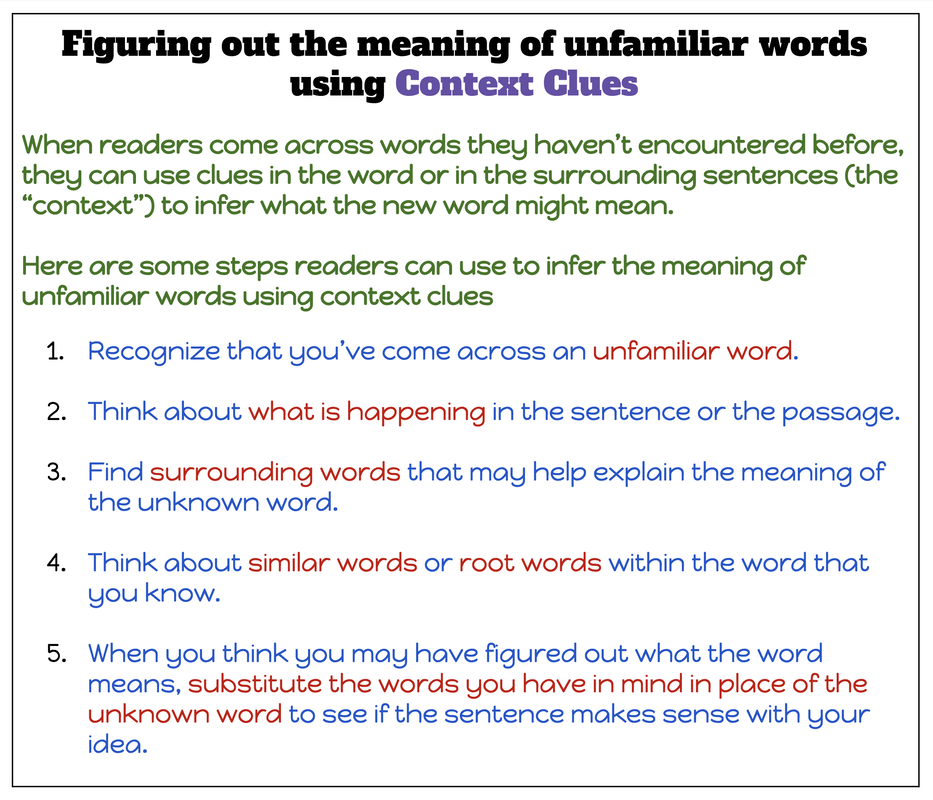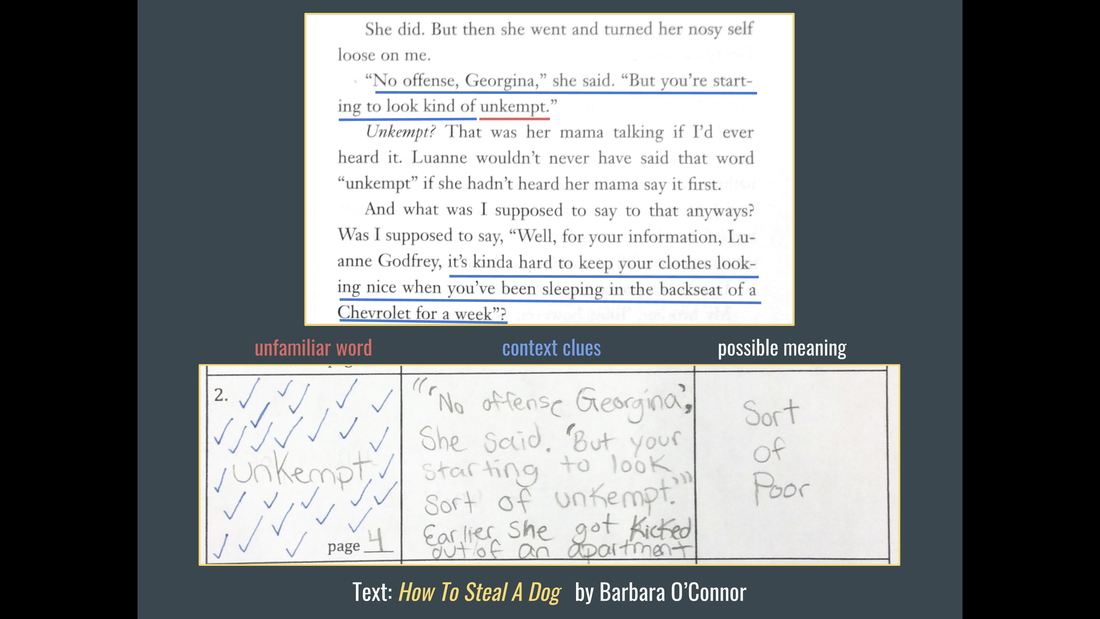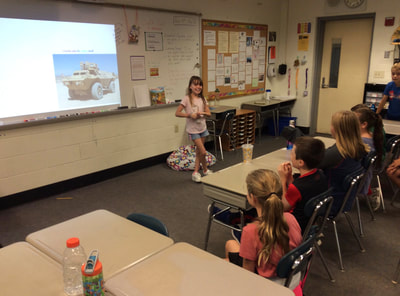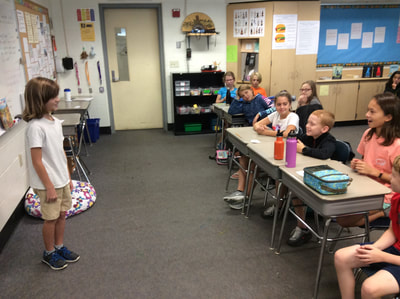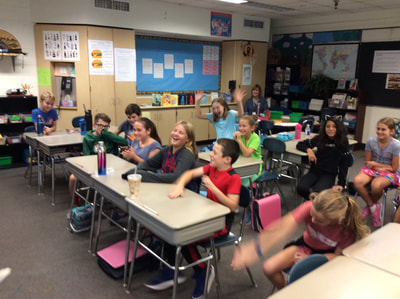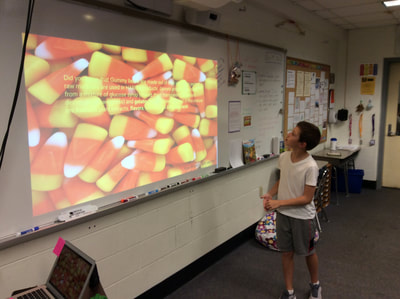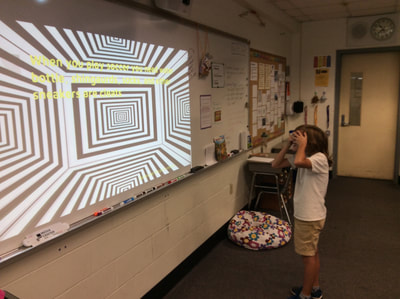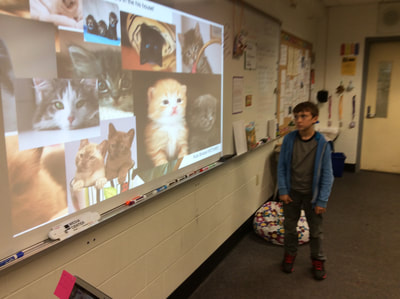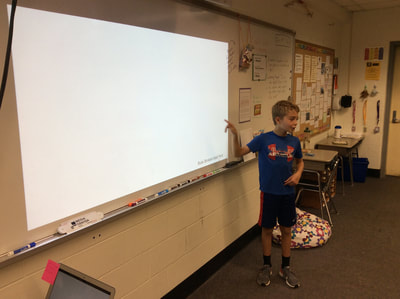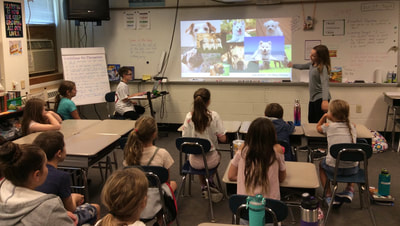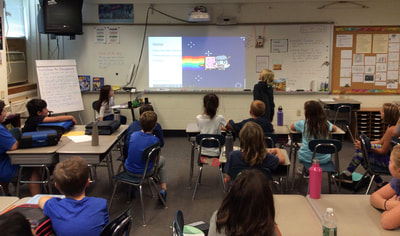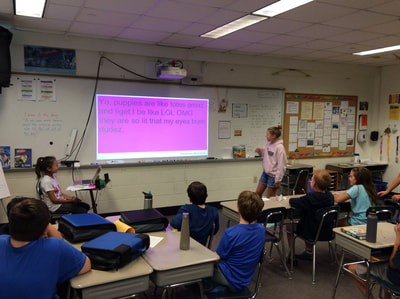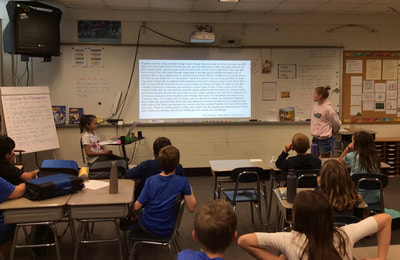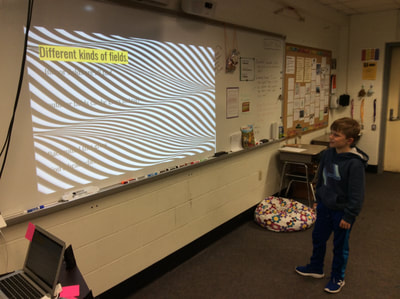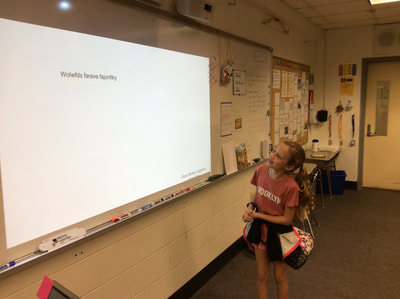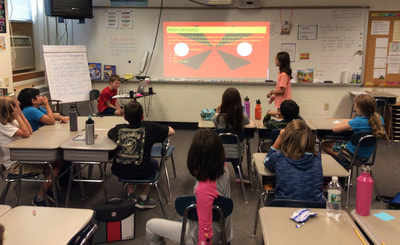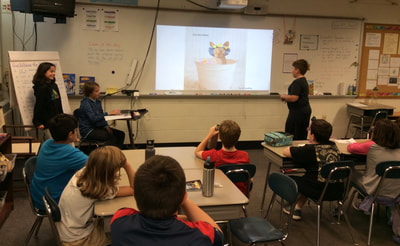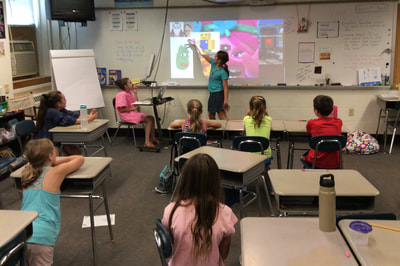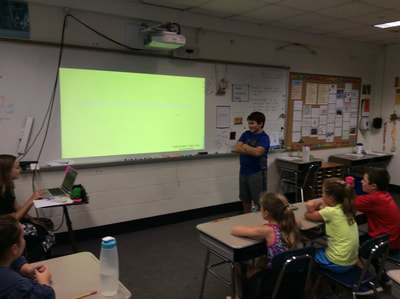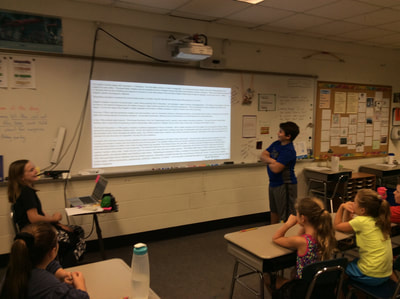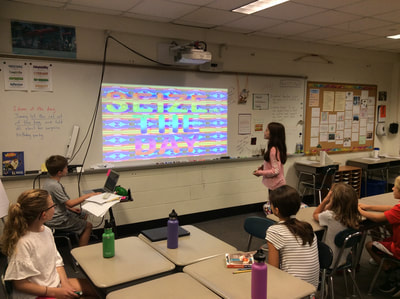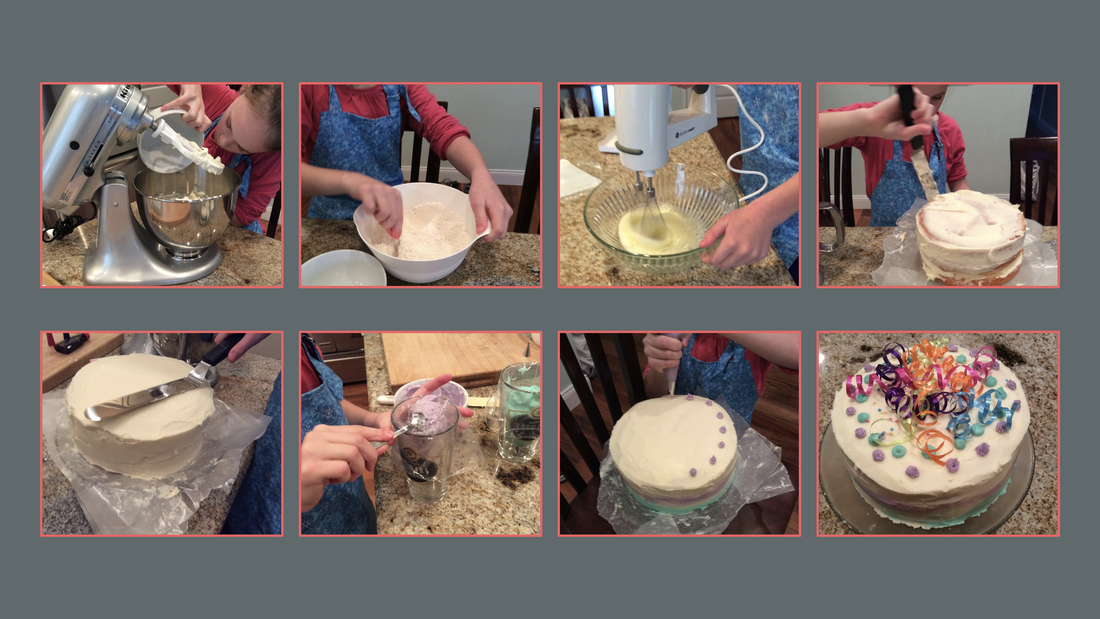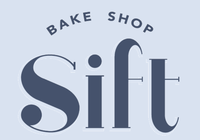|
We started working on our first formal writing project last week - writing a personal narrative. A personal narrative is a short story about a memorable event from your life. We spent the week brainstorming possible narrative ideas - gathering "seeds" that might grow into the actual writing.
We used three "seed-generating" prompts - 1) thinking about important people in our lives and memories of experiences with those people, 2) thinking about the first time we did something and the last (or most recent) time we did something, and 3) thinking about times when we experienced strong emotions like joy, sadness, nervousness, excitement, etc. After each brainstorming session, we got together and shared some of the ideas we recorded with friends. This coming week, we'll select the "seed" we want to plant and beginning our first draft of the narrative.
1 Comment
This last Monday, October 22, was the deadline for our optional baking challenge. We had lots of creative and delicious entries! I (Mr. Salsich) wish I had displayed the desserts in the classroom for all of the students to admire and had given more time for the "celebrity" judges (principals and teachers) to sample the desserts. I'll do it differently next time - that's all part of trying something, reflecting, and adapting! Here are pictures of the entries. (A slideshow of the bakers in action is coming soon!) And here are the deserving winners! Thank you to everyone who participated!
Be on the lookout for round 2, coming sometime this winter or spring... One of the things we have been focusing on since the first day of the year is how to have good group discussions. Being able to share your opinion in a group and listen and respond to different people's ideas is an essential skill in life.
These are the main guidelines that we've been practicing in our discussions:
The other day, we did an activity in class called "Iron Chef." The idea is, like the cooking show by the same name, we had a limited number of "ingredients" and a limited amount of time to complete a specific task and then present our project to the class. Unlike the TV show where the chefs work on their own, we worked in groups of 3-5. Our First "Iron Chef" challenge was to research and present information about different reading genres. Each group had a different genre to research using a Google Slide, and each group member had a different slide to complete. The genres we focused on were; realistic fiction, fantasy, informational, biography, and historical fiction.
We could only use the resources ("ingredients") provided, and we only had 12 minutes to complete the slides. Each slide had a "special ingredient" to add if we had time. Then, to make it even more challenging, we only had 2 minutes to prepare our presentation and exactly 20 seconds to spend on each slide! Post written by Hayden Last week during language arts we worked on a fun project about idioms where we had to randomly select an idiom, look up the meaning of it, and illustrate the idioms for what they sound like and what the real meaning is. We did this project do that if we came across an idiom when we are reading a book or doing something else, we’ll know what the idiom is.
Idioms are phrases that sound a little silly but have a different meanings. An example would be, Who let the cat out of the bag and told Billy about the surprise party? This doesn’t mean that somebody literally let a cat out of a bag, it means that somebody told a secret that wasn’t supposed to be said out loud. In my opinion I think it’s really fun because the idioms are funny and I like that we get to be creative with our drawings. Other students opinions about it were;
Click on the image below to see a full-screen slideshow of our illustrations! Our essential question in language arts this week is, "How can experiencing nature change the way you think about it?" This is a fascinating question that has led to many interesting discussions! We are reading narrative nonfiction texts about the nature experiences of Henry David Thoreau, President Theodore Roosevelt, John Muir, Jane Goodall, Jacgues Costeau, Eugenie Clark, Rachel Carson and other famous naturalists. We'd love to hear about an experience in nature that changed the way you think about it! Tell us about it in a comment, please! (For commenting tips and expectations, check out the commenting guidelines.) How has an experience in nature changed the way you think about it? Leave us a comment!During social studies last week, we used the Question Formulation Technique (QFT) to begin our learning unit about the European "discovery" of America. Starting with questions instead of answers is a great way to get the brain ready for learning. Also, in our modern world of information abundance, the "right" question is often more helpful than the "correct" answer... Finally, as any toddler will tell you, asking a bunch of questions is just plain fun! The QFT procedure is pretty straightforward. Given a statement or an image to respond to, students are asked to:
Below is the statement and image that we responded to: "These items led to the discovery of America."As groups, we came up with lots and lots of questions. Each group had at least 20. We then talked about the difference between a close-ended question (one that can be answered with a yes or a no or a short phrase) and an open-ended question (one that requires an explanation) and the advantages and disadvantages of both kinds.
We will be referring to the questions we came up with and using some of them as launching pads for research as we begin to learn about the different people who have called "America" home over the years, and what happened when they met each other. Below are pictures of use coming up with our questions. One of the most important skills a reader can have is the ability to figure out the meanings of unfamiliar words in their reading. The main way this is done is by inferring the meaning based on clues in the text. (Inferring is a fancy way of saying, "figuring out.") It is important to be able to infer the meaning of unfamiliar words for two main reasons; 1, it helps you understand the text, and 2, it helps you to grow your vocabulary. Here are some of the steps readers can use when inferring the meaning of new words: We have been working on this in class with assigned reading and with our independent reading.
Here is a slideshow showing some of the words we figured out last week and the clues that helped us:
Blog post written by Ella
As mentioned in the previous post, we have been working on the "WORST PRESENTATION EVER!!!" which is when we make a slideshow about a specific topic and make it horrible. We are doing it because we have to learn "the don'ts" to realize how badly they will affect our presentations. (You can find a list of the presentations "don'ts" here.) For the actual presentations, Mr. Salsich added a few twists, such as; we don't get to present our own presentations and there are judges - kind of making it like America's Got Talent! Facing the judges!
I really liked working on this. Some of my other classmates had their own opinions.
The Worst Presentation Ever was a big hit! For the next optional learning challenge, we are focusing on baking and cooking. The challenge is to prepare a tasty dessert following the guidelines listed below:
Entries are due Monday, October 22nd Judging: More information about the judging process will be coming soon - the students, parents, and principals are going to help figure all that out! If you have ideas, leave a comment! Prizes: The top three desserts, as selected by the judges, will earn the winners one of the following prizes: A $10 gift card to Sift Bakery, a mysterious kit to make sushi from a box, or an equally mysterious kit to make cheeseburgers and soda from a box. The first place winner will pick their choice of prizes, the runner-up will choose next, and the second runner-up will get the remaining prize. Of course, the real prize is having fun, learning, and making something delicious!
|
About UsWe are a 5th grade ELA and social studies class in coastal Connecticut. We post about our learning, our activities, our ideas, and our creativity. Quick LinksStar360 Archives
February 2019
Categories
All
|
Proudly powered by Weebly
